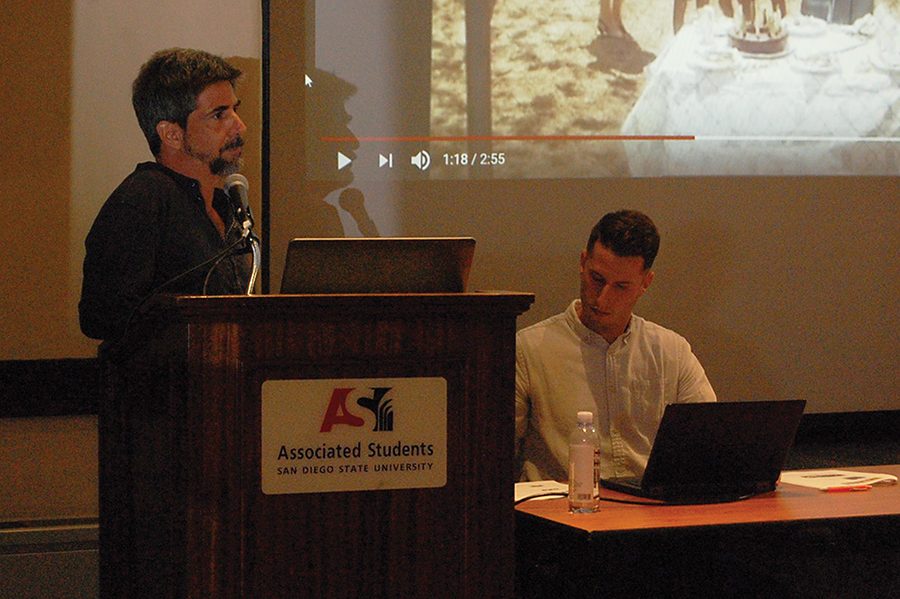San Diego State is home to people of all different backgrounds and cultures. This can be seen not just in SDSU’s international students, but in some of the faculty members who come from across the globe to teach students with a fresh perspective.
The SDSU Jewish Studies Program hosted visiting Israeli feature film director and screenwriter Nir Bergman on Oct. 16 to discuss his various international award-winning films.
Bergman began the event by showing his very first 1998 film, “Sea Horses.” The original Israeli title is called “Sussei Yam.”
The film is about young children living in a flat with their mother, waiting for their father to return home after their parents are temporarily separated.
Bergman graduated from the Sam Spiegel Film and Television School in Jerusalem and the film was his graduate school film. He said to this day he loves his work on “Sea Horses.”
After he played his various films for the audience, Bergman asked the audience if they had any questions about his work as an Israeli filmmaker.
Bergman is currently co-teaching a screenwriting class for SDSU’s Department of English and Comparative Literature this fall. He will be teaching the first half of the semester followed by Israeli documentary filmmaker David Ofek.
Political Science senior Angela Martinez attended Bergman’s lecture. She said she was interested in the fact that Bergman can offer a different worldly perspective to SDSU students who may not always have the chance to hear from filmmakers from other countries.
“As a political science major and someone who likes to learn about different cultures, it has been great to hear from professors like (Bergman) who is from Israel and can bring different perspectives from around the world,” Martinez said. “It’s really cool to be able to learn from professors with different backgrounds and views.”
His newest film, “Saving Neta,” premiered Oct. 10 at the Jewish Community Center in San Diego.
Bergman said he can’t pick his favorite film because they’re all different and have varying themes which take different meanings to him.
“You cannot choose which one you like best because the one you’re working on right now is the one that you love the best,” Bergman said. “You look back and you see things that you appreciate more or less in your work. So I cannot really say. They’re all different and I have a strange relationship with all of them.”
Bergman also said his experiences growing up living in Israeli influenced his dream of becoming a director and the films that he wanted to make.
“I think my childhood was like the earthquake of the family that happened in my life,” Bergman said. “It absolutely influenced me in becoming a person who wants to tell stories. I began to tell stories back then using my imagination strongly and trying to understand the world and I think your past is usually the material for you as an artist.”
Bergman said the hardest part of his job as a director and screenwriter is working alone because when he looks at the empty pages, he doesn’t know if he will succeed at writing something as good as something he’s written before.
He said the best part of his job is working with all the people who help bring the film to life.
“I love directing, I love working with actors,” Bergman said. “I love the moment when it becomes better than what you believed it could be.”









